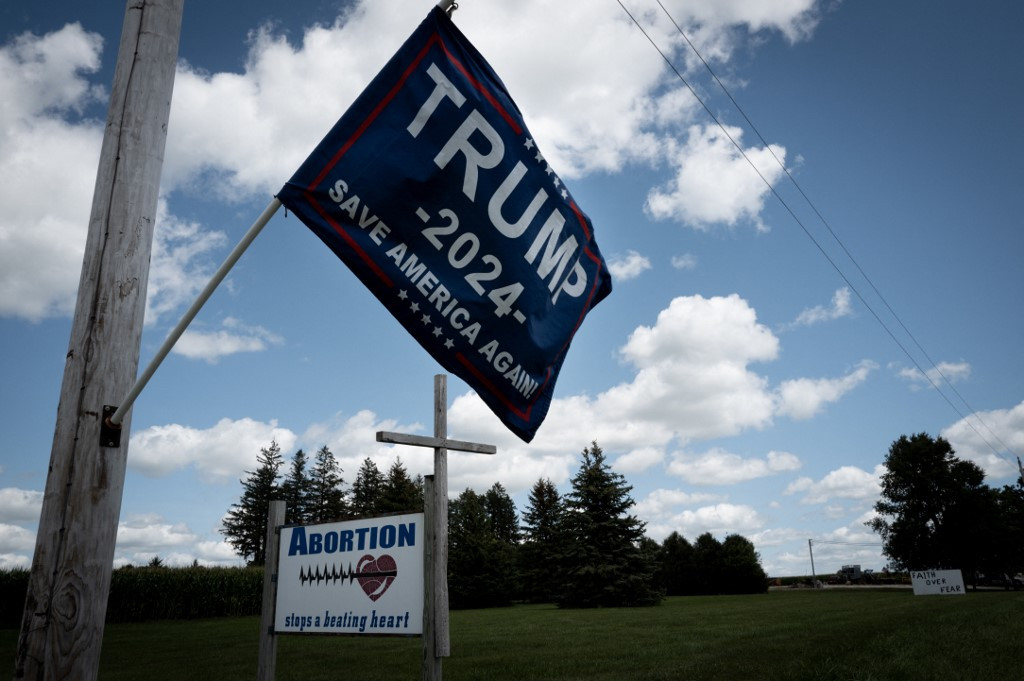Popular Reads
Top Results
Can't find what you're looking for?
View all search resultsPopular Reads
Top Results
Can't find what you're looking for?
View all search resultsTrump’s pro-corporate populism cannot last
The US president-elect is not the first Republican politician to purport to serve both commerce and the forgotten man.
Change text size
Gift Premium Articles
to Anyone
T
he outpouring of joy on social media after the murder of UnitedHealthcare CEO Brian Thompson suggests that the United States’ populist moment is evolving into something larger and more significant than just a backlash against the political establishment. If so, it is also becoming something Americans have seen before. In the late nineteenth century, the People’s Party, also known as the Populists, targeted big business as well as establishment politicians, blaming large enterprises for both destroying Americans’ livelihoods and corrupting the government.
This change could be bad news for Donald Trump. The US president-elect is not the first Republican politician to purport to serve both commerce and the forgotten man; but after campaigning alongside billionaires and inviting them into his administration, he has stretched this claim to the breaking point.
The American Populists were mainly farmers in the South and Midwest whose fortunes plummeted as the country industrialized and as the cultural center of gravity shifted to the cities. Both major parties neglected agrarian interests as they relitigated the Civil War and sought support from the rising commercial class (in the case of the Republicans) and the expanding ethnic populations in the cities (in the case of the Democrats). Farmers, pummeled by the “Great Deflation” caused by the government’s insistence on paying off the war debt, thus took it upon themselves to mobilize, achieving political dominance in several states and greater influence in Congress.
The Populists hated government elites in Washington, but they also hated the new businesses, particularly the railroads. The latter, they believed, discriminated against them in the market and corrupted the government through bribes and other forms of political influence. Still, while they considered the entire system to be rotten, they had no clear idea how to reform it. Many Populist leaders hoped a Napoleon-like president would come to power and sweep away big business and big government alike. Since these two forces were linked by tentacles of corruption, only a leader with no roots in conventional politics could achieve this goal.
It is a familiar story. Trump won the presidency in 2016 by attacking the political establishments of both parties, as well as the “deep state” (federal bureaucracy). But, owing to necessity as much as expediency, he rarely attacked the billionaire class to which he belonged. While he blamed the political class for ignoring illegal immigration, globalizing trade and meddling in foreign conflicts, what he sees as the roots of the US’ problems, he did not oppose big business. Instead, he confined himself to attacking business leaders who criticized him and his programs, along with the social-media platforms that he believed were censoring him and his followers.
Unlike in his earlier campaigns, Trump benefited from a kowtowing business establishment in 2024, and he has reciprocated by bringing billionaires into his inner circle. Elon Musk, now Trump’s most prominent cheerleader and surrogate, contributed more than US$250 million to his campaign. Meanwhile, others, including Amazon founder Jeff Bezos, billionaire investor Nelson Peltz and Blackstone CEO Stephen Schwarzman, have made their peace with Trump or are trying to. The libertarian wing of Silicon Valley has joined in with great enthusiasm. It will profit mightily when Trump delivers on his promise to deregulate crypto.
But while billionaires’ dollars and backing helped Trump win, so did the votes of his most loyal supporters, the vast majority of whom are not wealthy. Many are non-college-educated, lower-skilled workers and religious social conservatives who have grown increasingly hostile toward business. Trump tapped into this hostility by attacking Big Tech and railing against corporate America’s attempts to appease the left with diversity programs and climate goals.



















